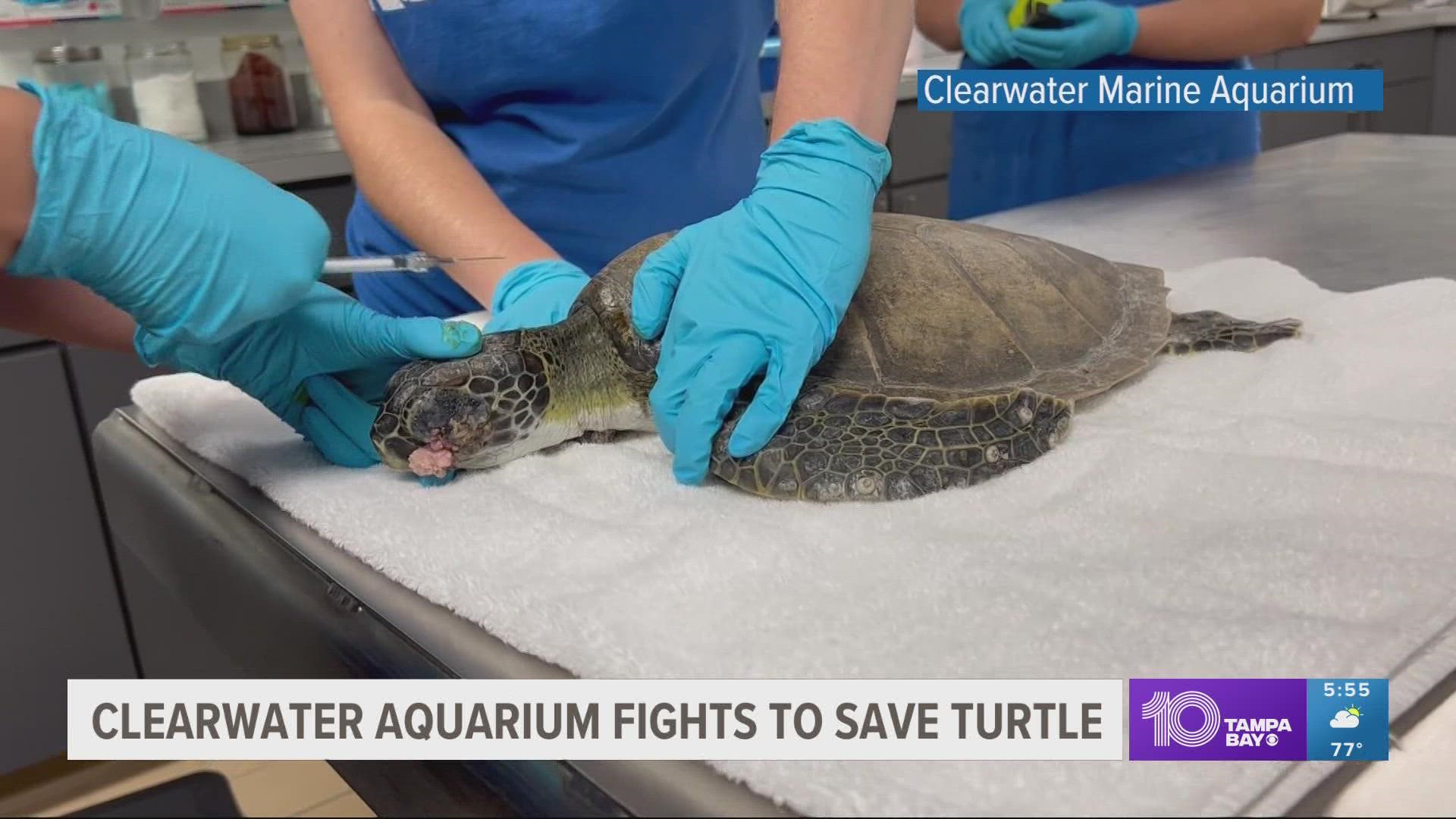CLEARWATER, Fla. — Biologists at the Clearwater Marine Aquarium say a rescued sea turtle needs some prayers and a miracle.
They are in a race to save the sea turtle which they have named "Badlands." They are planning to surgically remove some tumors caused by a virus that is deadly to sea turtles.
According to the CMA officials, the turtle washed ashore following the impact of Tropical Storm Nicole. The rescued sea turtle is named after one of the nation's national parks. Someone who saw it struggling on Friday called the aquarium for help and the turtle was rescued.
“Upon further evaluation, we saw that it has Fibropapillomatosis, which is a condition that's caused by a virus out there in the waters,” said Cassandra Starr, a biologist with the Clearwater Marine Aquarium.
The virus causes tumors to grow on the soft tissue of a sea turtle’s body and they can become large and extensive.
“Especially around their eyes. It can grow on their mouth, flippers and all that kind of stuff,” Starr said.
The tumors also affect the turtle’s ability to float or swim, causes an accumulation of gas and makes it lethargic among other symaptoms. But most concerning to biologists is that it can be deadly.
The tumors require surgical intervention to remove them from the turtle so that it can have better quality of life and a chance of surviving on its own and in it’s natural habitat.
RELATED: Remembering Winter: CMA announces memorial garden on 1-year anniversary of beloved dolphin's passing
“It’s usually multiple surgeries and it usually takes a few months for them to heal after each one. Some heal faster than others,” she said.
Currently there are five sea turtles undergoing rehabilitation at the Aquarium but officials said they get hundreds of turtles each year with different ailments but the most common issues they present is the virus infection.
“All of them have the fibropapillomatosis," Starr said."It's one of the most common things we actually see in a lot of our patients. As far as what causes it, unfortunately, we don't know."
Starr points to various theories by scientists including environmental pollution and degradation contributed by human activity. Surgeons are hoping they don’t find internal tumors as it would mean putting Badlands to sleep.
To follow Badlands' rehabilitation story and to learn about other turtles in the program and how you can help visit CMA's website.

